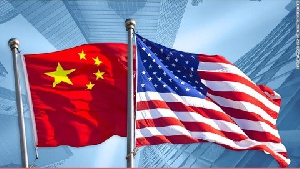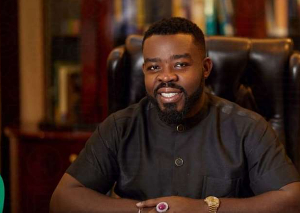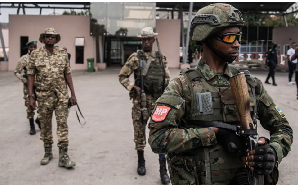Published in the New York Times on November 21, 2004
HOW I came to possess the name of the boxer who was once the most famous and baddest man on the planet happened by accident.
Well, not quite by accident. By religious default almost every male child born in the predominantly Islamic Zongo section of Kumasi, Ghana, where I grew up, had Mohammed as a first name. The Mohammed would be followed by a defining second name, usually an adjective that described the infinite qualities of the original Muhammad, the Holy Prophet of Islam (the spelling of the name varies). My name, Mohammed Naseehu, means Mohammed the Sincere One. One of my brothers is Mohammed Nazeer, the Overseer, another is Mohammed Nuru Deen, the Light of Islam. So for most of my teens, in Ghana, I was usually addressed by my second name.
But soon after I landed at Kennedy Airport in 1988 at age 16 on my way to Michigan to attend Interlochen, the boarding school for the arts, I noticed how little middle names matter in America. They are like dirty little secrets you share only with people you trust. And mine, Naseehu, is one that many non-Muslims find hard to pronounce.
I also liked the prospect of having the same name as the famed American boxer, so I dropped my second name. I hoped that my new identity would quicken my assimilation into American culture.
For 13 years I enjoyed the way people did a double take when they heard my name. I enjoyed flirting with telephone salespeople when they asked, "Really, is that your name?" or "You kidding me?" or "Get outta here.'' Before handing me back my credit card, cashiers would say, "Floats like a butterfly, stings like a bee!" Sometimes they'd shout across the store to their co-workers - "Look who I got here!" - and invite them to check out the puny freak named after the heavyweight champion.
I wasn't always sure if they were making fun of me or were simply fascinated that I shared the name of someone so bad and mean. But I didn't care, any more than I objected when the doorman in my office building started calling me the Legend. After I moved to New York for good in 1995, my name was an icebreaker, not to mention a handle that, at least for those initial few minutes after I met someone, conferred a few degrees of coolness.
My name is not cool anymore. On 9/11, I was one of the PATH train passengers evacuated from the World Trade Center after the first plane hit. Once outside, I called my wife in Brooklyn, and while we were speaking, the second plane hit. My phone died; I ran for my life.
In the days after the attacks, I didn't realize how the actions of the Arab religious zealots who masterminded them would affect my life. Two weeks later, I got a call from a worker at Western Union, which I had used to wire money for many years. The company had frozen the $100 I had sent my younger brother for his school fees in Ghana and were demanding that I fax them copies of my identification to prove that the money wasn't being sent to support terrorists. Verbal attacks were left on our answering machine by people who thought they were getting back at an Arab for Sept. 11.
These were mere inconveniences. What really got me was that my name had lost its cachet. People who had thought of "Ali" or "the Greatest!" when they heard "Mohammed" were now apt to think, "Atta." I am proud of the illustrious name of my grandfather, Ali, named for the Prophet's son-in-law. My grandfather himself became an immigrant at the turn of the 20th century when his father migrated with his family on horseback from Zamfara Kingdom, in what is now Nigeria, to the Gold Coast, which is now Ghana. Still I have considered changing my name, not only to fend off wary looks and offensive phone calls but also to restore the coolness I had lost.
Sometimes I think I'd be better off as Cassius Clay.
As I weigh the pros and cons of such a move - the effect on my work, my identity; the legal hurdles; the cognitive dissonance it would create in the minds of friends and relatives who would surely think I am losing it altogether - one benefit is clear. I could still enjoy the morale boost I get from the doorman at my office, who could still shout "the Legend" each time I flash my security badge.
Mohammed Naseehu Ali is the author of "The Prophet of Zongo Street,'' a story collection to be published next year.












